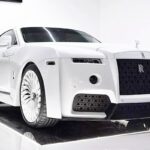
Once widely regarded as a pioneering force in the tech and automotive industries, Elon Musk is now facing intensifying backlash in the U.S., across Europe, and the U.K. The criticism, which stems from his political statements and public behavior, has evolved from online discourse into symbolic acts of protest, with Tesla vehicles becoming targets in the crosshairs.
In South London, a group calling itself Everyone Hates Elon hosted a performance protest that involved the staged destruction of a 2014 Tesla Model S. The event, held at Hades Studios, featured participants using baseball bats and sledgehammers to damage the vehicle physically, turning the act into a form of political performance art. The car, reportedly in good condition before the event, was donated anonymously and served as the centerpiece for what organizers called a statement on Musk’s growing social and political influence.

From Art to Activism: Criticism of Musk Expands Across Europe
The protest, which included participants such as a University of Cambridge researcher, framed Musk as a tech executive and a symbol of perceived institutional erosion. “Musk is undermining the values of the U.S. Constitution and threatening public institutions,” the researcher said, positioning the act of vandalism as a broader social warning rather than a simple critique of a company or product.
Promotional materials for the group include provocative messaging such as “Don’t buy Swastikas,” pointing to an effort to connect Musk’s public persona and larger sociopolitical issues. These materials have gained traction on social media platforms, helping the group broaden its support base and reach.

Satirical Billboards Target Tesla’s Public Image
The movement has also taken to guerrilla marketing tactics. Across the U.K., manipulated billboards have appeared at bus stops in major cities, featuring slogans like “Your car is on autopilot, your country is a dictator” and “Fast and the Führer.” These messages, though satirical, underscore the depth of dissatisfaction among critics who equate Musk’s leadership style with authoritarian tendencies.
This wave of criticism has drawn international attention, with major U.S. outlets reporting similar anti-Tesla campaigns spreading across Europe. Some activist groups have stated their intention to harm Tesla’s brand value and potentially influence investor sentiment.
A representative from another protest group, Tesla Takedown, stated, “It’s rare for a billionaire to face this level of direct mockery and resistance. Musk’s public conduct invites satire and scrutiny, and people are responding.”
Implications for Tesla’s Global Brand
While Tesla remains a dominant player in the EV market, the growing wave of criticism represents a reputational risk that could extend beyond Musk himself. The current backlash is not centered on product performance or customer experience, but rather on ideological and behavioral concerns tied directly to Tesla’s CEO.
As public protests escalate and social media campaigns intensify, Tesla may face growing pressure from consumers, investors, and regulators. Whether the movement will materially affect sales or share price remains to be seen, but the brand’s association with its polarizing CEO is becoming increasingly difficult to separate.
























